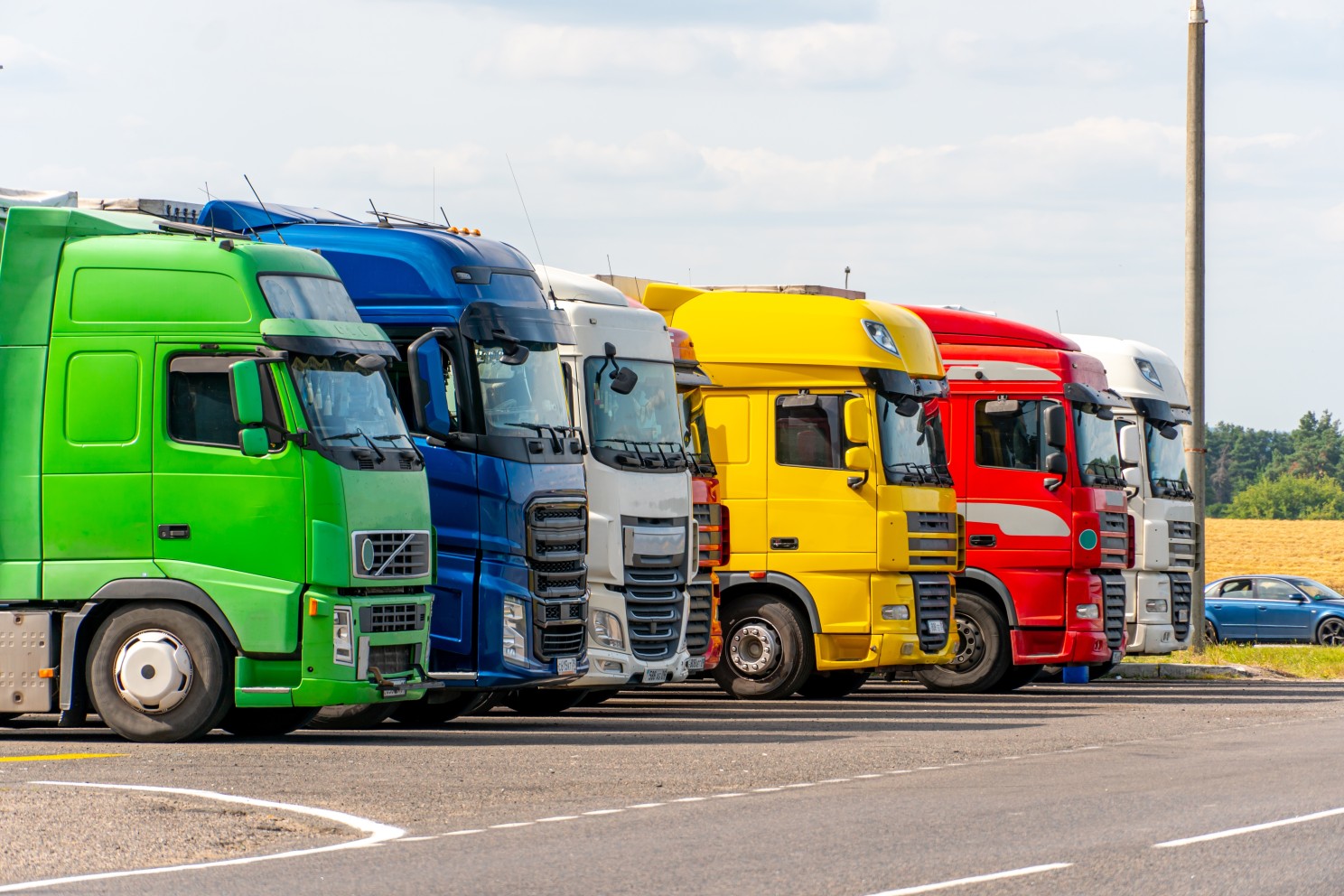
Susie Jones
How to tackle driver diversity in the industry
Created: 21/08/2024
•
Updated: 21/08/2024
If we asked you to describe a truck driver, your response may portray a stereotypical image of an older, white male. Is this accurate? Traditionally, the trucking industry has been male-dominated. Over the years, the industry has become more diverse and opened opportunities for women, people of different ages and backgrounds to enter the field. Diversity is growing, but external challenges such as Brexit and the pandemic have stunted this.
Women in the industry
Despite a shortfall of up to 100,000 HGV drivers in the UK, only 1% to 3% of truckers are women. So, why aren’t more females signing up for life on the road?
• Safety: It’s estimated that 60% of women truckers have felt unsafe whilst on the job. Many have expressed the need to park under a light, plan their stops, and carry pepper spray.
• Tech and equipment: Ergonomically, trucks were built for men. In the past, women have found reaching for controls, adjusting seats, and the physical aspects of the job restraining. However, technological advancements mean physical exertion isn’t a problem. Most modern trucks now have power steering and automatic gearboxes to make things easier.
Despite these setbacks, women are making their voices heard and enforcing change in the industry. Drivers like Jodi Smith are invaluable advocates for the industry. Jodi shares her trucking experiences online and proves that this industry isn’t just a man’s world.
“Lorry driving isn’t a man’s job – I can do this job with a full set of acrylics! It’s quite physical but it’s not hard” states Jodi when we spoke to her back in 2021. With seven years of experience behind her, Jodi continues to advocate for more women to join the trucking community.
A result that could lead to safer roads - American Transportation Research Institute data shows women are safer commercial drivers. Male drivers are 20% more likely to be involved in a crash compared to their female counterparts.

Age diversity in the industry
The Office of National Statistics suggests that the average age of an HGV driver is forty-eight, and 47% of truck drivers in the UK are over fifty and looking to retire soon. These statistics on top of the current driver shortage suggest a need for younger drivers in the industry.
That is easier said than done; many young drivers face the following challenges:
• Training: Obtaining a commercial driver’s license can cost up to £2,000
• Insurance: Although the minimum age to drive an HGV in the UK is 18, many struggle to get insurance
• Experience: Some companies want to hire experienced drivers, which can be a setback
• Conditions: Truckers' lives can be demanding - long hours and time spent away from loved ones could be a deterrent. However, there are many perks to life on the road, such as community, travel, pay, and job stability.

Companies looking for drivers can benefit from hiring younger truckers. They are more likely to adapt to an ever-changing industry. Additionally, they are quick learners who welcome technological advancements. A rise in younger drivers joining the industry will result in lower turnover rates - reducing company costs. It will also ensure that the industry meets the growing demand for goods and services.
However, what are the setbacks for you if you're an older driver? Some suggest age affects physical and cognitive abilities, impacting the ability to drive safely. These are vital for truck drivers as they deal with long hours, physical demands, and stressful situations.
FMCSA has addressed these concerns. Regulations require older drivers to undergo frequent medical exams and driving evaluations. Recently, it was reported that a 90-year-old lorry driver from Sheffield was still trucking after getting a clean bill of health. Many argue that older drivers bring decades of experience and knowledge - suggesting that if they are healthy, there shouldn’t be a barrier to employment.
How can diversity resolve the current driver shortage?
In 2022 the Office for Veterans’ Affairs provided £100,000 to the charity Veterans into Logistics. The charity offers veterans the opportunity to become HGV drivers. The funding has enabled the charity to significantly uplift its annual training, increase staff numbers and treble the training available. XPO, ASDA, and Muller Milk & Ingredients are all companies actively hiring veterans directly after training.
Additionally, ASDA provided £40,000 to help with further training. Support for charities like Veterans into Logistics creates a more diverse culture within truck driving whilst actively tackling the current driver shortage.
What can be done to attract more diversity?
Having a diverse workforce opens companies to different points of view and experiences. What can companies do to attract a diverse workforce?
• Invest in training: Training to educate employees about topics such as implicit bias, inclusivity in the workplace, discrimination prevention, and how to support a diverse workforce can have a positive effect.
• Invest in an inclusive hiring process: Anonymising a candidate's CV can reduce unconscious bias.
• Promote an inclusive culture: Communicate to potential candidates how you are tackling current diversity and inclusion issues.
• Reach out to underrepresented groups in this industry.
Promoting and welcoming a diverse culture in truck driving can benefit the industry substantially. Not only will it contribute to creating a more inclusive and welcoming work environment, but it will also assist with the ongoing driver shortage. Trucking companies have a responsibility to embrace diversity just as much as truck drivers.

What country is in demand for truck drivers?
A report published in December 2022 suggested that Europe's shortages had jumped by 42% from 2020 to 2021. The UK came out top with vacant driver positions reaching 100,000. Mexico and China were also high up on the list, with Mexico’s shortages rising by 30% and China’s rising to a staggering 140%.
Will we need truck drivers in the future?
The introduction of self-driving trucks has left many suggesting there is no future for truck drivers. However, this is far from the case.
• Autonomous trucks will be deployed incrementally in designated regions. The likelihood that this would affect most drivers is slim.
• If autonomous trucks were implemented worldwide, drivers would still be needed. The demand for truck drivers will only increase as there are too many things that could happen if there wasn't a driver in the cab.
What are truck drivers' stereotypes?
We know the importance of truck drivers, but in the eyes of a few, negative stereotypes are still linked to the industry – this portrayal can be down to media misrepresentation and sometimes to a few inexperienced drivers. But what is this stereotypical image? And why is it wrong?
• Overweight – Some truck stops offer unhealthy fast food which could give you the impression that truck drivers only consume it. However, that is certainly not the norm. Eating healthy on the road can be a challenge but many stick to a well-balanced diet and exercise regularly. Check out our tips for eating healthy on the road.
• Bad drivers – A stereotype that couldn’t be further from the truth. Professional truck drivers take safety extremely seriously. They often keep to the speed limit, are extra cautious in difficult weather, and leave plenty of room between themselves and other drivers.
• Foul-mouthed – We all get road rage and truckers are no exception. However, it's unfair to put this stereotype solely on truckers.
• All truckers are men – Men outnumber women in this industry; however, female truck drivers are rising.


